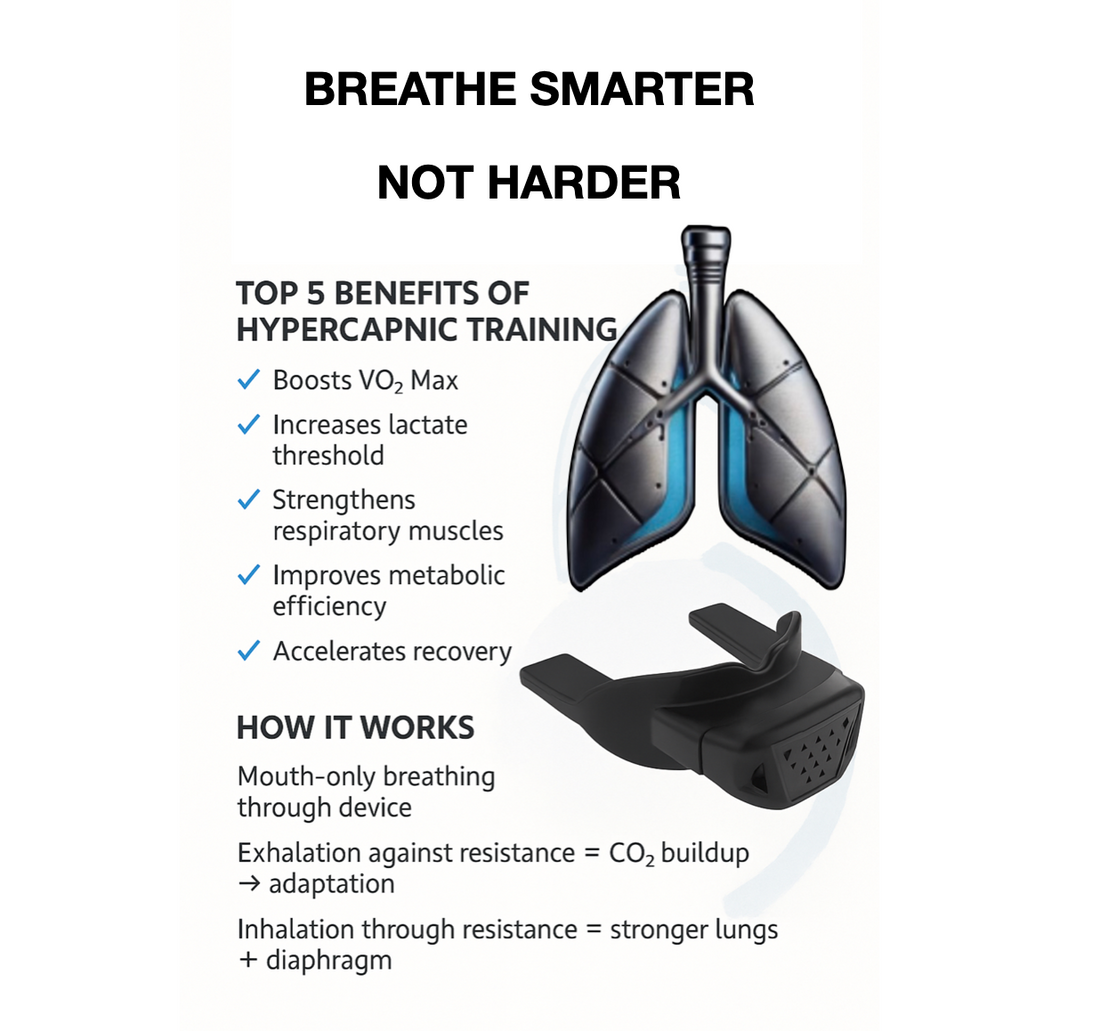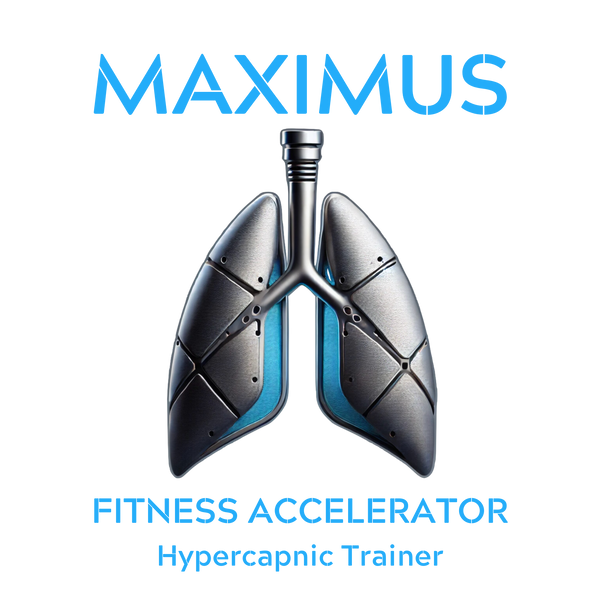
VO2 Max Longevity, Mortality Link - Hypercapnic Training Improves VO2 Max
Share
VO2 MAX & MORTALITY
Dr. Kenneth H. Cooper, often called the “father of aerobics,” is a physician and researcher based in Dallas, Texas. His pioneering work in the 1960s led to the popularization of aerobic exercise as a key factor in improving health and longevity. His research, conducted through the Cooper Institute, focused on the relationship between VO2 max (a measure of aerobic capacity) and mortality risk.
VO2 Max and Longevity
VO2 max (maximal oxygen consumption) measures how efficiently the body uses oxygen during exercise. A higher VO2 max is associated with better cardiovascular fitness and overall health. Research by Cooper demonstrated that individuals with higher VO2 max scores tend to live longer and have lower risks of chronic diseases such as cardiovascular disease, diabetes, and even some cancers.
One of his major findings was that cardiorespiratory fitness (CRF) is a stronger predictor of mortality than traditional risk factors like smoking, hypertension, or high cholesterol.
Key Research Findings
Cooper’s landmark studies (published in the 1980s and 1990s) showed that higher levels of fitness—measured by VO2 max or performance on treadmill tests—are linked to significantly lower risks of all-cause mortality and cardiovascular mortality.
A 1999 study from the Cooper Institute, which followed 25,000 men and 7,000 women, found that individuals with higher CRF levels had a 50% lower risk of death from all causes compared to their less fit counterparts.
Subsequent research confirmed that even modest improvements in VO2 max significantly reduce mortality risk.
Recent Supporting Studies - Since Cooper’s original research, multiple studies have reinforced the strong link between VO2 max and longevity:
1. JAMA Cardiology (2018)
This study of over 122,000 patients found that higher CRF was directly associated with a longer lifespan and that there was no upper limit to the benefits of fitness.
Those in the highest fitness category had the lowest mortality rates.
2. Mayo Clinic Proceedings (2019)
Researchers confirmed that each 1 MET (metabolic equivalent) increase in VO2 max reduced mortality risk by 12%.
People in the highest 25% of VO2 max had a 5x lower risk of early death compared to those in the lowest 25%.
3. European Heart Journal (2021)
A study using genetic data found that lifelong high cardiorespiratory fitness is associated with lower risks of cardiovascular disease and longer life expectancy.
Practical Takeaways
Higher VO2 max = Longer Life: The better your aerobic capacity, the lower your risk of premature death.
Fitness Trumps Other Risk Factors: Even in people with high blood pressure, obesity, or diabetes, high VO2 max reduces their overall risk of death.
Exercise Improves VO2 Max: Regular aerobic exercise (running, cycling, swimming, HIIT) increases VO2 max and promotes longevity.
Conclusion
Dr. Kenneth Cooper’s groundbreaking research in Dallas was among the first to prove the connection between VO2 max, longevity, and reduced mortality risk. Subsequent studies have overwhelmingly supported his findings, showing that cardiorespiratory fitness is one of the strongest predictors of lifespan. The takeaway is clear: improving your aerobic fitness is one of the most powerful ways to extend your life and reduce disease risk.
